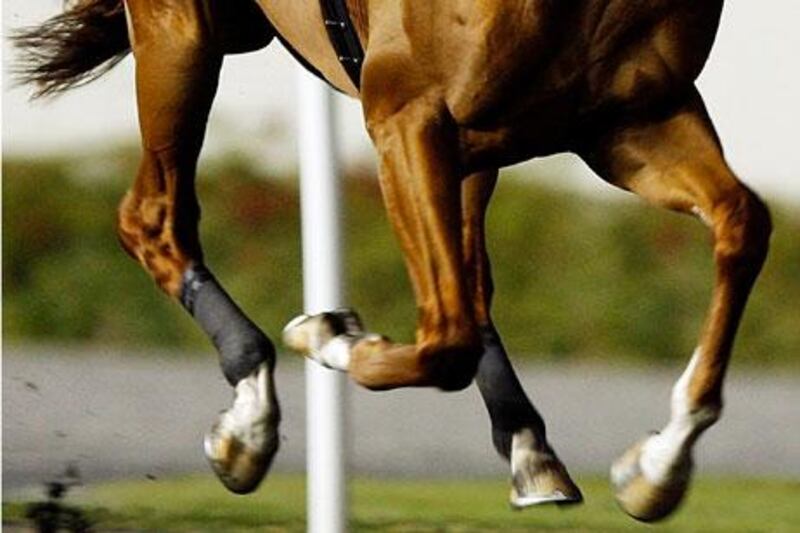DUBAI // Racehorses have been intensively bred since the Darley Arabian arrived in England in 1704 having been bought by Thomas Darley from Sheikh Mirza II in the Syrian Desert.
The colt covered mares for 15 years and now 95 per cent of all thoroughbreds can have their ancestry traced to this foundation sire.
It highlights an unnatural inbreeding and as a result racehorses are notoriously fragile.
What is particularly noticeable is that their feet and legs have become increasingly problematic as they struggle to absorb the shock of their immense weight.
The cheetah is the fastest land animal on earth but weighs only 60kg, barely one-eighth the weight of the average thoroughbred.
Twice Over, who raced three times at Meydan Racecourse, including twice in the World Cup, has little room for nails in his feet for the application of traditional horse shoes which has resulted in a specially designed plastic shoe being attached to his hoofs.
"He's improved because we cemented these shoes on to his feet. Before it was like him racing with shoes on half a size too small," said Sir Henry Cecil, the horse's trainer.
David Sykes, the Emirates Racing Authority veterinary officer, is critical of how the fraternity looks after the stars of show in general and appreciates the masters of their craft who keep racehorses in one piece.
"The problem with feet is the husbandry, by the way we keep them," he said. "In the wild horses are wanderers and grazers and we confine them. We interfere with them, put shoes on them and get farriers to trim them.
"Good trainers can manage those problems. If they have horses that have foot problems, and they can manage that with different shoes, that is part of the expertise of the trainer."
Follow us
[ @SprtNationalUAE ]
& Geoffrey Riddle
[ @Louchepunter ]





